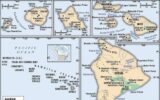MORGAN’S HAWAIIAN REPORT as appears in Los Angeles Herald February 27th 1894
MORGAN’S HAWAIIAN REPORT, (as appears in the Los Angeles Herald February 27th 1894)
The entire report here:
https://ia601501.us.archive.org/13/items/InRegardsToTheProtestOfCouncilPersonJenniferRugglesInRegardsToTheAnnexationOfHawaiiByTheUSA/The_Morgan_Report_3_parts.pdf
A Complete Vindication of ExMinister Stevens.
American Supremacy in the Islands Stoutly Upheld.
Supplemental Reports Filed by Other Members of the Investigating Commlttee—The Whole Ordered Printed.
By the Associated Press. Washington, Feb. 26.—The senate held but a short session today in order to give the Democrats an opportunity afterwards to continue the caucus begun in the morning. Morgan, chairman of the committee on foreign relations, presented a report on the Hawaiian investigation, and Fry gave notice that Wednesday he would address the senate on that subject. MORGAN’S HAWAIIAN REPORT. Morgan’s report was on the result of tbe investigations the foreign committee made under the resolution requiring it to report “whether any and, if so, what irregularities occurred in the diplomatic or other intercourse between the United States and Hawaii in relation to the recent political revolution in Hawaii.” The report prepared by Morgan is concurred in by Sherman, Frye, Dolph and Davis, Republican members of the committee, who make also a supplemental report. Butler, Tarpie, Daniel and Gray, Democrats, submit a minority report. These reports, together with the mass of evidence taken by the committee, are very voluminous. Morgan begins with the proposition that this government, dealing with any form of government in Hawaii, can have no break in its line of policy, corresponding to any change in the office of president. It is in all respects the same government as if under the same president during the entire period. The president, however, has the right to change his opinion and policy, but it must be regarded as a change of mind in the same person. The report then declares against monarchism in the islands, saying: “We exercise at least a moral suzerainty over Hawaii which is an American state embraced in the American commercial and military system, entitling us to indulge in consideration of, if not active sympathy with, the endeavors to release her people from the odious antirepublican regime that subordinates her people to the supposed divine right of a monarch whose title to such divinity originated in the most slavish condition of pagan barbarity.”
LANDING OF TROOPS APPROVED. The report approves Minister Stevens’ order for landing troops from the Boston, on the ground that conditions existed which tend naturally to apprehension of a civil commotion endangering the security of American citizens, and points out that on three or four previous occasions similar action was taken. This condition, the report says, grew out of the effort of the queen to overthrow the constitution, and that her act amounted to an act of abdication and neutralized her power to protect American citizens. The report says: “It is evident that the queen’s government at that time had no power to prevent the landing of troops from any quarter, nor power to protect itself against invasion; no power to conduct the civil government. In other words an interregnum existed; the queen only held the throne under her oath and the constitution, and when she declared herself absolved therefrom, it was an actual act of abdication. Furthermore, she bad been overthrown by the white people of the islands. Before the troops from the Boston landed, the Hawaiian monarchy had perished.” In view of this, the report lays down the proposition that “in a country where there is no power of law to protect citizens of the United States, there can be no law of nations, nor any rule of comity that can rightfully prevent our flag from giving shelter to them under the protection of our arms; this, without reference to any distress it may give the queen who generated the confusion, or any advantage it might give the people disputing her right to resume her legal power,” The report declares that the purpose of Minister Stevens and Captain Wiltse were legitimate and that they acted in good faith and with no interests except protecting American citizens and preserving order. The report speaks of the work of the American missionaries in building up a constitutional government in that country, and cays it entitles the people of the United States to sympathize and assist in resisting its destruction. The queen’s desire to banish or kill her opponents should cause America not to hesitate to support the government opposed to her. The report then says President Cleveland, as soon as he learned of this disposition of the queen, abandoned further exercise of the attempts at reconciliation, though, unfortunately, Willis, in the belief that he was following his instructions, held two or three interviews with the queen thereafter. The report adds: “When the crown falls in any kingdom of the western hemisphere it is pulverized, and when the scepter departs it departs forever. American opinion cannot sustain any American ruler in the attempt to restore them, no matter how virtuous and sincere the reasons may be that seem to justify him.” RECOGNITION JUSTIFIED. Stevens’ recognition of the new government is justified, the report saying: “It was his duty at the safest possible period to assist by recognition the termination of the interregnum for the safety of citizens of the United States.” The report says: “The question of annexation and Stevens’ anxious advocacy thereof, did not relieve him from his duty, or abridge his right to call for troops to protect citizens of the United States. The committee therefore find no cause of censure, either against Minister Stevens or Captain Wiltse. The subsequent raising of the American flag on the government building, and the declaration of the United States protectorate was void for want of power, and disavowed by Secretary Foster, and rebuked by Gresham. who ordered the protectorate abandoned and the flag hauled down to preserve the national honor of this country.” The report makes the point that we have always exercised the privilege of interference in Hawaii to an extent not justified in the affairs of other countries.
ANNEXATION FAVORED.
The matter of annexation is discussed at length, and while the whole tenor is favorable to annexation, no direct state-
ment to that effect is made. It says annexation has been the subject of almost constant contemplation among Hawaiians since the beginning of the reign of Kamehameha I. In diplomatic correspondence frequent and favorable allusion has been made to the subject. The testimony taken by the committee discloses the opinion that several of our most eminent naval and military officers think annexation indispensable to the proper defense and protection of our western coast cities. The committee says it is one deserving a thorough investigation and a correct and friendly decision. The report states that the recognition of the provisional government was lawful and contributed to peace. BLOUNT’S APPOINTMENT. The report then takes up the appointment of Blount and bis investigation. It says he presented a sincere and instructive report, but that the agitated state of opinion and the feeling in Hawaii at the time made it next to impossible to obtain a full, fair and free declaration of facts; that the evidence taken by the commissioner, under more favorable circumstances, established the fact that the revolution originated with Liliuokalani, who expected through the opium and lottery bill to secure funds to carry out her purpose. The report upholds the right of the president to appoint Blount and delegate to him paramount authority. It says the president would not have been justified in using force to restore the queen, and that he did not contemplate such action; therefore his tender of his good offices for a settlement of differences was strictly within his accepted right. The fact that the provisional government was formed to exist till annexation to the United States justified interference for its protection, which would not have been tolerated under other circumstances; therefore the provisional government, having thrown itself into the arms of the United States, cannot justly complain that the United States should scrutinize all pretensions of right thus to dispose of the entire country and people. Moreover, the queen herself abdicated provisionally, awaiting the decision of the United States as to her rights. Under these conditions, the president of the United States believing the information then in possession of the government was not sufficient to justify summary annexation, could not have done justice to himself or his country, to the people of Hawaii, to the provisional government or to Liliuokalaoi, without having made an effort to use his good offices to ascertain whether it was practicable for the queen to be restored to authority. THE RESTORATION QUESTION. The report says if the provisional government had agreed to restoration, the United States would not have been in any sense responsible for her restoration, would not have espoused the monarchy, nor have contravened annexation sentiment or policy; they would merely have been mutual friends in the solution of the question. Therefore, the committee concludes: “The president of the United States has not in this particular, in any wise been a party to any irregularity or impropriety of conduct in his high office. The committee finds nothing worthy of criticism in the negotiation of a treaty of annexation with the provisional government of Hawaii as, the provisional government was perfectly competent to make such treaty. The committee finds that the treaty was not negotiated too hastily, as charged, because both parties desiring it a speedy conclusion was desirable in the interest of good government. Moreover, the danger of the islands falling into the hands of a European power, made prompt action necessary.” The report finds that Stevens’ earnest advocacy of annexation is not open to criticism, being in line with many and nearly all of his successors as secretary of state, and with many of Stevens’ predecessors in Hawaii. It declares: “His dealings with the Hawaiian government were characterized by becoming dignity and reserve, and were not in anyway harsh or offensive. The only substantial irregularity in the conduct of any officer of the United States was the declaration of a protectorate by Stevens, though no actual harm resulted from this act, and it merely required to be disavowed as a precedent.”
THE REPUBLICANS’ REPORT. The Republican members in their supplemental report express accord with the essential findings of the main report, but declare Blount’s appointment was unconstitutional; the placing of the naval force at Honolulu under his order, illegal; the hauling down of the American flag at Honolulu by Blount’s orders, unwarranted, because it created public excitement and distrust; that the president had no authority to reopen the question of the legality of the provisional government, or attempt to restore the monarchy; he could not act without the joint consent of both parties. THE MINORITY REPORT. The report of the Democratic minority declares Stevens guilty of unbecoming participation in events which tended to revolution, but exonerates Captain Wiltse. Butler and Turpie submit a brief statement in favor of the annexation of the islands. VOLUMINOUS TESTIMONY. The testimony taken by the committee is very voluminous, covering over 700 pages, touching all the points in controversy. Stevens testified that his reasons for disclaiming a protectorate were that both the Japanese and British purposed doing so. Blount declared he had not the slightest intimation, from the president or anybody else, until after his return from Hawaii, of his intention to reinstate Liliuokalani.
SENATE BUSINESS.
The several reports were printed without reading.
A letter from the secretary of the treasury to the attorney general, asking whether silver certificates were lawful money and the reply of the latter in the negative were read. A joint resolution for the appointment of a commission to the Antwerp exposition passed. Alter a brief executive session the senate adjourned.
Reference to the article in image format from a photograph of the newspaper
- This is the entire report, it is 15MB in size, you can download the PDF here
- More history regarding the Morgan Report @ www.morganreport.org







